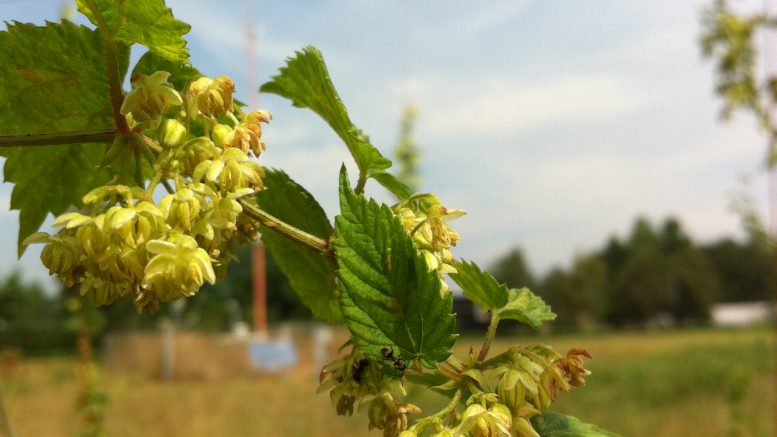Changes in chemical profile of Cascade hop cones according to the growing area: influence of growing area in Cascade hop cones
Journal of the Science of Food and Agriculture 99(13): June 2019
Margherita Rodolfi, Benedetta Chiancone, Claudia Maria Liberatore, Andrea Fabbri, Martina Cirlini, Tommaso Ganino
Abstract
Background: The growing area has a substantial effect on plants, affecting secondary metabolism. In hops, different authors studied the effect of growing area on the chemical composition of cones with the aim of verifying and understanding the changes in hop characters. Despite the scant literature the subject receives an increasing attention by brewers and hop growers. The present study aimed to characterize with gas chromatography-mass spectrometry (GC-MS), and HPLC-UV, cones of hop (Humulus lupulus L.) cultivar Cascade. Plant material was obtained from 9 different areas of Italy and compared with Cascade samples grown in USA, Germany and Slovenia. Results: Differences in bitter acids and xanthohumol content were observed. Nevertheless, no correlation between bitter acids and xanthohumol production, on one side, and rainfall, temperatures and latitude, on the other, were observed in our samples. The Slovenia samples were richer in molecules that confer hoppy, woody and flower notes; USA2 samples were more characterized by woody, earthy, grassy and floral aroma, quite different characters if compared to USA1, which had the lowest presence of grassy aromatic compounds. In the Italian samples, TRENTINO was the genotype most characterized by limonene presence. Conclusion: The results of this study are indicative of the importance for hop users to know and characterize hops coming from different growing regions. The study pays special attention to the characterization of the differences in chemical characters of Cascade hop in Italy, where hop cultivation has developed only recently, but is in continuous expansion. This article is protected by copyright. All rights reserved.


Be the first to comment on "Brewers need to know the origin of hops"